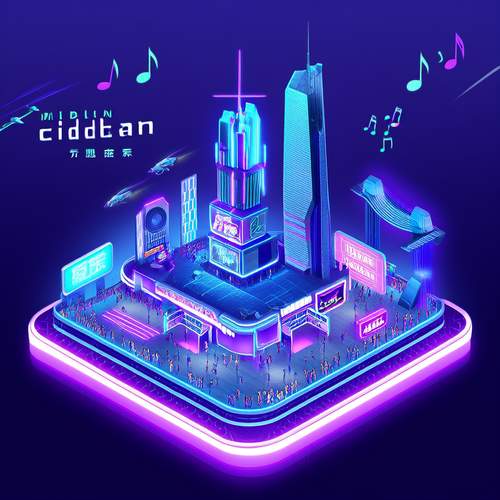The music industry has long grappled with the complexities of copyright management, a challenge exacerbated by the digital age's rapid dissemination of content. Traditional systems often fail to provide transparency, efficiency, or fair compensation for artists, leaving many creators at the mercy of intermediaries. Enter blockchain technology—a decentralized ledger system that promises to revolutionize how music rights are tracked, managed, and monetized. By leveraging blockchain, the industry could finally address longstanding inefficiencies and empower artists with greater control over their intellectual property.
At its core, blockchain offers an immutable and transparent record of ownership, ensuring that every transaction or transfer of rights is permanently documented. This is particularly valuable in music, where authorship and ownership disputes are common. For instance, when a song is created, its metadata—such as composer, lyricist, and performer credits—can be recorded on the blockchain. This creates an indisputable timestamped record, reducing the likelihood of disputes and simplifying royalty distribution. Unlike traditional databases, which are prone to manipulation or errors, blockchain's decentralized nature ensures that no single entity can alter the data unilaterally.
One of the most compelling applications of blockchain in music copyright is the automation of royalty payments through smart contracts. These self-executing agreements can be programmed to distribute royalties instantly and accurately whenever a song is streamed, downloaded, or licensed. This eliminates the need for intermediaries like collecting societies or publishers, which often take significant cuts and introduce delays. For independent artists, this means faster and more transparent payments, while major labels can streamline their accounting processes. The potential for near-real-time compensation could transform the financial viability of a career in music, especially for emerging talents.
Beyond royalties, blockchain also opens new avenues for fan engagement and monetization. Tokenization, for example, allows artists to issue digital tokens representing ownership stakes in their work or exclusive access to content. Fans can purchase these tokens, effectively investing in an artist's success while gaining perks like VIP concert tickets or unreleased tracks. This creates a direct economic relationship between creators and their audiences, fostering loyalty and providing artists with alternative revenue streams. Platforms like Audius and Ujo Music are already experimenting with such models, demonstrating the feasibility of decentralized music ecosystems.
Despite its promise, the adoption of blockchain in music copyright faces significant hurdles. Legal frameworks around the world are still catching up with the technology, and questions remain about how blockchain-based rights management will interact with existing copyright laws. Additionally, the energy consumption of some blockchain networks has drawn criticism, prompting a search for more sustainable solutions. Education is another barrier—many artists and industry professionals remain unfamiliar with blockchain's capabilities, necessitating widespread awareness campaigns to drive adoption.
Looking ahead, collaboration between technologists, artists, and policymakers will be crucial to realizing blockchain's full potential in music copyright. Pilot projects and partnerships, such as those initiated by major labels with blockchain startups, are laying the groundwork for broader implementation. As the technology matures and these challenges are addressed, blockchain could usher in a new era of fairness and transparency for the music industry—one where creators are rightfully rewarded for their work, and fans enjoy a more direct connection to the art they love.

By /May 30, 2025

By /May 30, 2025

By /May 30, 2025

By /May 30, 2025

By /May 30, 2025

By /May 30, 2025

By /May 30, 2025

By /May 30, 2025

By /May 30, 2025

By /May 30, 2025

By /May 30, 2025

By /May 30, 2025

By /May 30, 2025

By /May 30, 2025

By /May 30, 2025

By /May 30, 2025

By /May 30, 2025

By /May 30, 2025

By /May 30, 2025